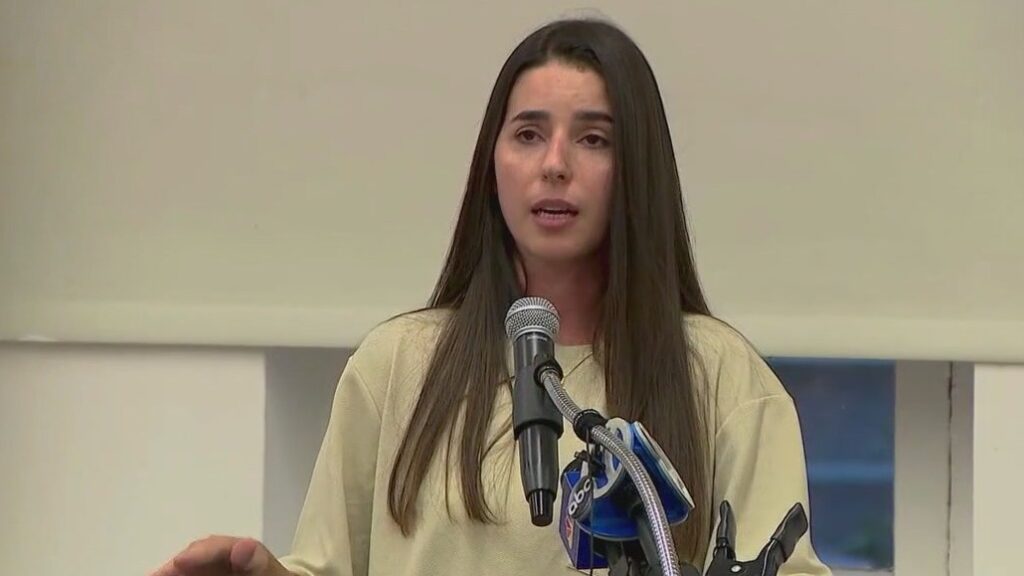On October 7, 2023, during an event at the Nova Music Festival near Gaza, Sapir Cohen’s life took a harrowing turn when she was abducted by Hamas terrorists. In a split second, a celebration turned into chaos as explosions echoed nearby. Together with her boyfriend Sasha, Cohen sought shelter under a bed, hoping the violence would spare them. However, their chance ran out when terrorists broke into their location, seizing Cohen and leaving her boyfriend behind. This moment marked the beginning of her 55-day ordeal in captivity, during which she would experience unimaginable darkness but ultimately also uncover a profound sense of faith and purpose.
For Cohen, the subsequent days in captivity were characterized by brutality and deprivation. She vividly recounts the harrowing experience of being attacked by a mob in Gaza, where she felt her life hanging in the balance. The hostages, including Cohen, were denied basic necessities—food, clean water, and even the awareness of time—while hidden deep in the tunnels beneath Gaza. In describing the prison-like conditions, Cohen expressed the overwhelming fear and confusion she experienced. While many would succumb to despair, Cohen held onto hope, which would later pivot into a significant spiritual awakening.
Amidst the torment, Cohen underwent a spiritual revelation that reframed her perspective on her suffering. Rather than solely focusing inward on her pain, she felt a stirring responsibility to help another hostage—a 16-year-old girl who was also in distress. This shift in focus allowed her to transform her experience of captivity into a mission, which brought her a newfound strength. As Cohen stated, “I want to save her and I want to make her happy,” showcasing how her empathy could emerge even in adverse circumstances. This decision not only inspired her but also fortified her spirit, allowing her to endure the trials of captivity with a semblance of purpose.
After nearly two months of captivity, Cohen’s release was secured as part of a cease-fire and a prisoner exchange deal negotiated by various parties. While she was liberated, the reality was bittersweet; her boyfriend Sasha remained among the estimated 100 individuals still in captivity under Hamas. Upon her return, she quickly became a resilient symbol of hope, and her narrative captivated audiences around the world. Her ordeal and subsequent release amplified the continuing plight of many families still facing the uncertainty of their loved ones’ fates.
Rabbi Ari Berman, the president of Yeshiva University, recognized Cohen’s journey not just as a tale of survival, but one of profound transformation. Inviting her to visit Yeshiva University Stern College for Women, he highlighted how her captivity forged an unexpected faith within her. Cohen had not been a person of faith prior to her ordeal, but her experience in the tunnels prompted her to connect deeply with her spirituality. Through her prayers, she found solace and understanding, ultimately expressing gratitude for her situation despite its horrors; “I prayed to God… for bringing me to this place,” she recounted.
Today, Cohen travels to Jewish communities across the globe, sharing her powerful story of endurance and faith. Her message emphasizes that faith can be a source of healing and hope, even in the bleakest circumstances. Rabbi Berman encapsulates her impact well, noting that “Faith heals and faith spreads hope.” As she continues to pray and advocate for the release of the remaining hostages, Cohen stands as a beacon of resilience, reminding many around the world of the inner strength that can arise when hope refuses to falter. Her journey illustrates not only the struggle for survival but also the unfathomable capacity for human connection, compassion, and transformation amidst adversity.

